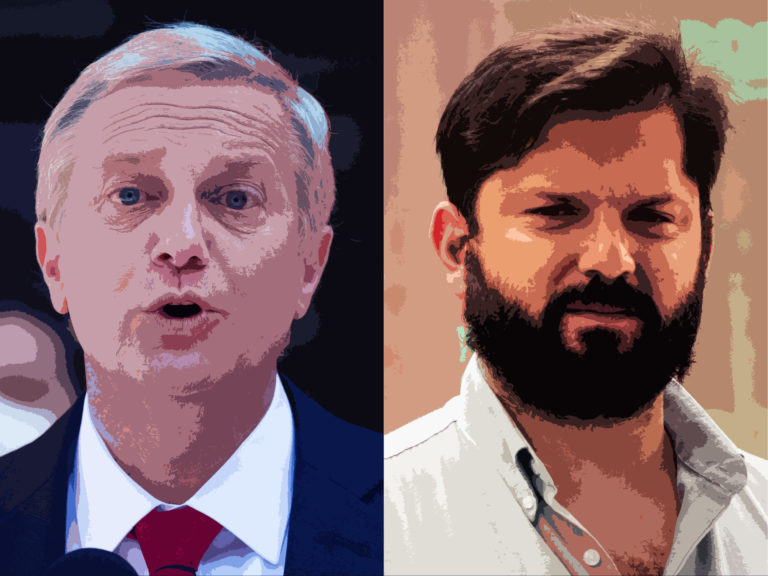If with so many presidential candidates in the first round of elections abstention was higher than the number of voters, nothing presages that now the situation could change and not be even more those who are reluctant to vote for either of the two options in the race. That is, for José Antonio Kast or Gabriel Boric. It will surely be confirmed that whoever is elected President of the Republic will not receive more than 20 or 25 percent of the total number of citizens.
In this way, democracy will be the most affected in these elections. It is unquestionable that the country cares much more about security issues and socio-economic demands than the stability of a regime that in forty years, moreover, has not achieved the democratic standards that exist in other nations of the world. Where there is greater social equality, press diversity and fuller institutionality. Where the branches of government, for example, have real autonomy, where presidentialism is not so suffocating, and where probity and transparency reign in Parliament and the judiciary.
A country plagued by the fear of common crime, by the growing phenomenon of drug trafficking and the unhinged actions of political violence, can hardly consolidate social peace, which is the great aspiration of the people. Together, of course, with the right to work, to decent salaries and pensions, and for discrimination, xenophobia and racism to cease, as they are undoubtedly expressed in our tense social coexistence. Not only in Araucanía, but throughout the country.
It will be very difficult for candidate Kast to shake off his Pinochet past, his strong conservatism and the many fears that his extreme right-wing position represents. It will be even more difficult for him to separate himself from some of those supporters who do not hesitate to justify serious human rights violations and, to top it all, advocate the release of genocidaires and torturers condemned by Chilean and international courts.
It will also be difficult for candidate Boric to distance himself from his own statements, such as that of advocating amnesty or pardon for those who at the time of the social upheaval committed serious disturbances and even set fire to Metro stations and some churches. Even though they have been arbitrarily detained for so long awaiting acquittal or execution.
We could be sure that the vast majority of Chileans do not want anything that would mean the slightest hint of the time of the dictatorship, but at the same time they are very unhappy with the current state of the country, in which millions of people already feel harassed and not even safe in their own homes and neighbourhoods. In this sense, it is clear that Kast’s discourse has been the most accurate and that Boric has very little time to tune in to a people who in reality condemn violence “wherever it comes from”, as is so often proclaimed in political manifestos.
Both candidates are weighed down by their own supporters and allies. If the Republican candidate wants to win, it is obvious that he will have to give in to the aspirations of the centre right, a sector that needs to recover electorally, in addition to offering governability, after the dismal performance of the Piñera government. In addition to capturing the vote of those who supported a candidate as puerile as Franco Parisi, who came in third place in the polls, with practically no one foreseeing such success for a candidate who, to top it all, lives outside the country and only campaigned through social networks.
Gabriel Boric will always have problems with the support of the Communist Party, with the resistance that this party arouses in many; even more so now that he has managed to position himself electorally as the main force within the Apruebo Dignidad or Frente Amplio pact, which will make his presence in La Moneda relevant. Both in the ministerial cabinet itself and in senior positions in the public administration.
We also assume that the candidate must be unhappy about asking for the support of the big losers of the last election day: the Christian Democrats, the PPD, the Socialist Party and the Radicals. Even more so, if they set conditions and thereby offend the most radicalised and intransigent sectors of the left-wing alliance. An effort that, moreover, may be in vain, when we know that the leaderships of these and other leaders do not get much out of giving party orders, when even their own legislative benches are constantly rebelling against them.
For the country, the worst thing is what is repeated insistently about voting for the “least bad” and closing the space for legitimate abstention or blank or null votes, which can also express the feelings of the Chilean people. What seems certain is that whoever wins the next election will do so by a narrow margin, which is certainly disastrous for the objective of achieving consensus or a parliamentary majority for the implementation of the solutions that the people expect. Most obviously, there has been a lack of “high mindedness” and conviction in these recent processes, as well as many doubts about the lack of leadership of the candidates, which is expressed in doubts and fears about their intellectual solvency, firmness, experience and other attributes of good governors.
It is difficult to resolve, but in the light of what has happened, it would be advisable to reinstate compulsory voting and force those elected by the people to be clearly representative in the vote. And an end to the idea of electing a ruler who will quickly have a majority in the opposition. Even in severe protest, if his government proves incapable of resolving social demands. In this respect, it would be good if the Constitutional Convention, which has been legitimised by the popular vote, fulfils its task and its members, especially its leaders, do not get entangled in the electoral contingency.












